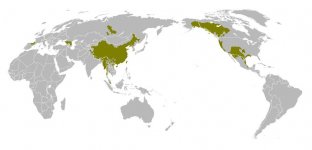Wilhelm
Regular Member
- Messages
- 1,658
- Reaction score
- 56
- Points
- 0
- Location
- Spain
- Ethnic group
- Celtiberians
- Y-DNA haplogroup
- R1b-S26
- mtDNA haplogroup
- H1
Spaniards are one of the most Paleolithic and least Neolithic of all euroepans.The Basques were by no means the first. ALL Europeans have inherited DNA from Paleolithic Europeans. Judging from Y-DNA hg I and mtDNA H1, H3, U5 and V, those who inherited the most DNA from Paleolithic Europeans are the Saami, Finns, Scandinavians, Bosnians, Croatians, then only the Basques (because it's only mtDNA).
..the origins of the Iberian Y-chromosome pool may be summarized as follows: 5% recent NW African, 78% Upper Paleolithic and later local derivatives (group IX), and 10% Neolithic (H58, H71). No haplotype assumed to have originated in sub-Saharan Africa was found in our Iberian sample. It should be noted that H58 and H71 are not the only haplotypes present in the Middle East and that the Neolithic wave of advance could have brought other lineages to Iberia and NW Africa.
Bosch et al. 2001


